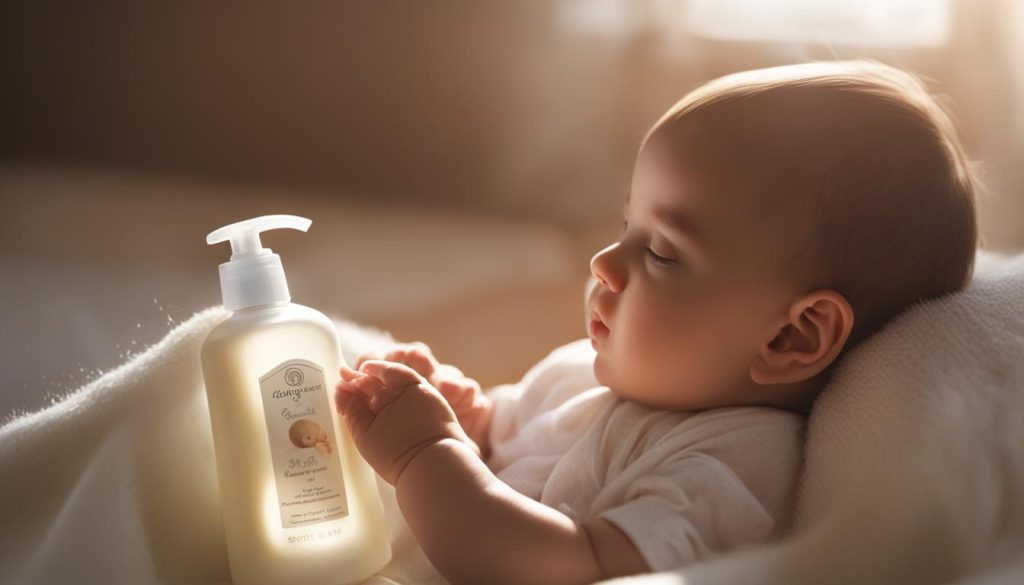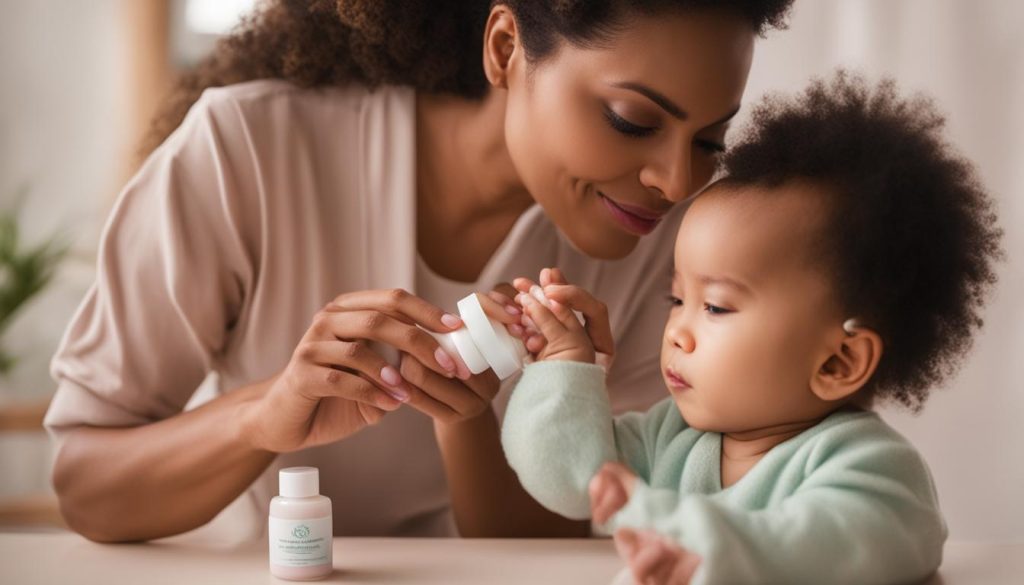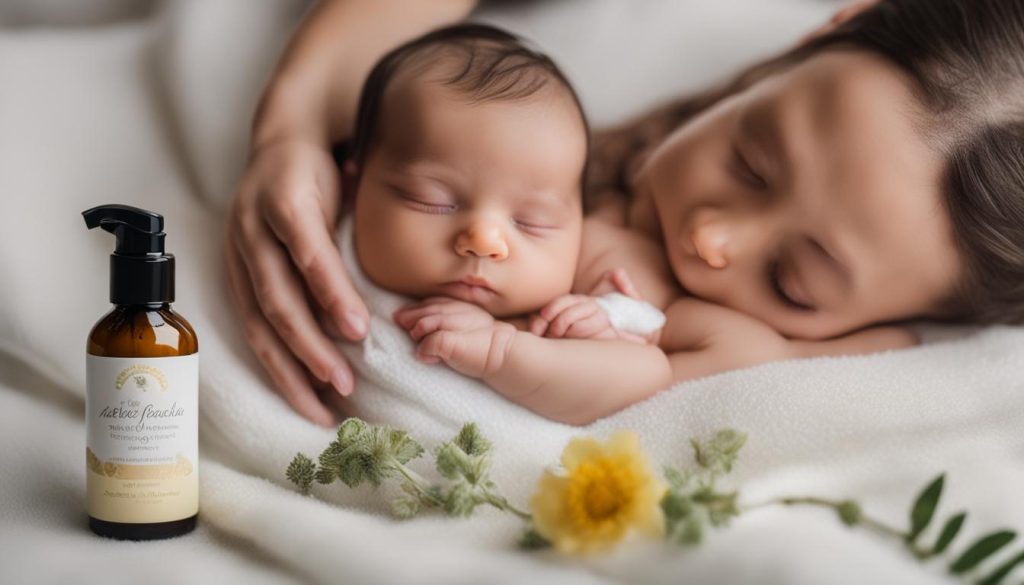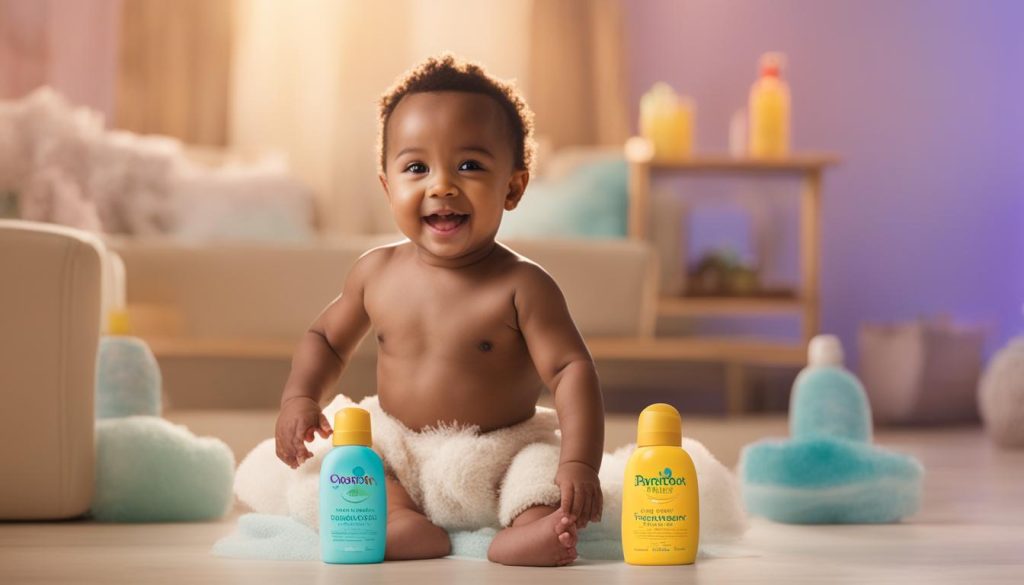Newborns have delicate and soft skin that requires proper care and skincare. Bathing and skincare routines are essential for maintaining the health and texture of a baby’s skin. Contrary to popular belief, most babies only need to be bathed 2 or 3 times a week or every other day. Sponge baths are necessary until the umbilical cord falls off and circumcision heals. Supplies needed for bathing include soft washcloths, baby shampoo and soap, towels, and clean clothing. Sponge baths should be done in a warm room, with warm water in a basin or sink. The baby’s face should be cleaned first, followed by the rest of the body. A soft baby brush can be used to comb the baby’s hair. Moisturizers, like lotion, are generally not necessary unless the baby has dry skin. It’s important to follow cord care instructions given by the healthcare provider.
Importance of Skincare for Newborns
Skincare is crucial for newborns as their skin is still developing and is more fragile and sensitive. Proper skincare practices help maintain the integrity of the infant skin barrier and can prevent skin problems in the future. This includes appropriate cleansing, moisturizing, and sun protection. Bathing the baby in warm tap water every few days or as needed using mild, soap-free cleansers is recommended. It’s important to avoid products with fragrance, botanicals, and antibacterial agents as they can be irritating. Moisturizing with a thick, non-fragranced moisturizer can be done daily when the skin shows signs of dryness. Nappy area care is crucial to prevent diaper rash, and regular changes, the use of absorbent nappies, and barrier cream application are recommended. Clothing the baby in light, loose, and soft cotton fabrics, as well as providing sun protection, are additional important skincare practices.
Skincare is crucial for newborns as their skin is still developing and is more fragile and sensitive. Proper skincare practices help maintain the integrity of the infant skin barrier and can prevent skin problems in the future. This includes appropriate cleansing, moisturizing, and sun protection. Bathing the baby in warm tap water every few days or as needed using mild, soap-free cleansers is recommended. It’s important to avoid products with fragrance, botanicals, and antibacterial agents as they can be irritating. Moisturizing with a thick, non-fragranced moisturizer can be done daily when the skin shows signs of dryness. Nappy area care is crucial to prevent diaper rash, and regular changes, the use of absorbent nappies, and barrier cream application are recommended. Clothing the baby in light, loose, and soft cotton fabrics, as well as providing sun protection, are additional important skincare practices.
Skincare is crucial for newborns as their skin is still developing and is more fragile and sensitive. Proper skincare practices help maintain the integrity of the infant skin barrier and can prevent skin problems in the future. This includes appropriate cleansing, moisturizing, and sun protection. Bathing the baby in warm tap water every few days or as needed using mild, soap-free cleansers is recommended. It’s important to avoid products with fragrance, botanicals, and antibacterial agents as they can be irritating. Moisturizing with a thick, non-fragranced moisturizer can be done daily when the skin shows signs of dryness. Nappy area care is crucial to prevent diaper rash, and regular changes, the use of absorbent nappies, and barrier cream application are recommended. Clothing the baby in light, loose, and soft cotton fabrics, as well as providing sun protection, are additional important skincare practices.
When Can You Use Lotion on a Newborn?
Using lotion on a newborn’s skin is generally not necessary unless the baby has dry skin or specific skin concerns. Most newborns have naturally well-hydrated skin and do not require additional moisturization. However, if your baby does have dry skin, it’s important to choose a lotion specifically formulated for infants and free from fragrances and harsh chemicals. Pediatricians can provide guidance on the appropriate use of lotion for newborns based on their individual skincare needs.
When considering using lotion on a newborn, it’s essential to prioritize their delicate skin and choose products that are gentle and safe. Newborn skin is still developing and is more fragile and sensitive compared to adult skin. It’s crucial to avoid lotions with fragrances, dyes, and known irritants or allergens. Opt for lotions that are hypoallergenic, dermatologist-tested, and free from common skin irritants.
Consulting with pediatricians and reading product labels is key to selecting the right lotion for your newborn. They can provide personalized recommendations based on your baby’s specific skincare needs. Remember, newborn skincare is a delicate matter, and it’s important to always prioritize the health and well-being of your little one.
The Importance of Pediatric Guidance
Seeking guidance from pediatricians regarding skincare practices for newborns is crucial. They can provide expert advice on when to use lotion and recommend suitable products based on your baby’s individual needs. By following their guidance, you can ensure that you are providing the best possible care for your newborn’s skin.
Comparing Baby Lotion Brands for Newborns
Choosing the right baby lotion for your newborn is essential for their delicate skin. With so many brands available, it can be overwhelming to find the safest and most effective option. To help you make an informed decision, I have compared some popular baby lotion brands on the market. The following table provides a detailed comparison of different factors to consider when selecting a baby lotion for your newborn.
| Brand | Safety | Fragrance-Free | Hypoallergenic | Ingredients | Price |
|---|---|---|---|---|---|
| Brand A | Yes | Yes | Yes | Gentle, natural ingredients | $ |
| Brand B | Yes | No | Yes | Some natural ingredients | $$ |
| Brand C | Yes | Yes | No | Synthetic ingredients | $ |
| Brand D | No | Yes | Yes | Gentle, plant-based ingredients | $$$ |
When comparing baby lotion brands, safety should be the foremost consideration. Look for brands that are labeled as safe for newborns and free from harmful chemicals. Fragrance-free lotions are also recommended as fragrances can potentially irritate a baby’s sensitive skin.
Hypoallergenic formulations are another important factor to consider. These lotions are less likely to cause allergic reactions or skin irritation. Opt for lotions that are specifically designed for sensitive skin and have undergone dermatological testing.
The ingredients in the baby lotion should be gentle and nourishing for the delicate newborn skin. Choose lotions with natural ingredients, such as shea butter and natural oils, which provide hydration without causing irritation. It’s always a good idea to read the labels and avoid products with synthetic or harsh chemicals.
Price can also play a role in your decision-making process. However, it’s important to prioritize the safety and quality of the baby lotion over the cost. Investing in a trusted and reputable brand that meets the necessary safety standards is worth considering to ensure the well-being of your newborn’s skin.
By comparing these baby lotion brands based on safety, fragrance-free formulations, hypoallergenic properties, ingredients, and price, you can make an informed choice that will best suit your newborn’s skincare needs.
The Importance of Lotion Ingredients for Newborn Skin
When it comes to using lotion on newborn skin, the ingredients in the lotion are of utmost importance. Choosing the right ingredients ensures the safety and effectiveness of the product, as well as the overall health of the baby’s delicate skin.
Newborn skin is sensitive and prone to dryness, so it’s crucial to select lotions that contain gentle and baby-friendly ingredients. Harsh chemicals, fragrances, dyes, and known irritants should be avoided, as they can potentially harm the baby’s skin and cause irritation or allergic reactions.
Look for baby lotions that are hypoallergenic, dermatologist-tested, and free from common skin irritants. Ingredients like shea butter, aloe vera, and natural oils can provide hydration and nourishment to the skin without causing any adverse effects. Consulting with pediatricians and reading product labels can help parents make informed decisions about the lotion ingredients that are best suited for their newborn’s skin.
| Lotion Ingredients to Avoid | Suitable Lotion Ingredients for Newborns |
|---|---|
| Fragrances | Shea Butter |
| Dyes | Aloe Vera |
| Harsh Chemicals | Natural Oils |
“Choosing the right lotion ingredients is essential for the health and well-being of a newborn’s delicate skin. By opting for lotions that are free from fragrances, dyes, and harsh chemicals, parents can help prevent irritation and keep their baby’s skin soft and supple.” – Pediatric Dermatologist
Remember, every baby is unique, and what works for one may not work for another. Consulting with a pediatrician is always recommended to ensure the lotion ingredients are suitable for your newborn’s individual skincare needs.
Understanding Different Skin Types in Newborns
Just like adults, newborns can have different skin types that require specific care and attention. Understanding your baby’s skin type can help in selecting appropriate skincare products, including lotions, and ensure their skin remains healthy and free from any issues. The most common skin types in newborns include:
1. Normal Skin:
Newborns with normal skin have a balanced moisture level and generally have healthy, problem-free skin. This skin type requires regular maintenance and protection to keep it in optimal condition.
2. Dry Skin:
Some newborns may have dry skin, which can appear flaky or rough. Dry skin lacks moisture and requires gentle, moisturizing products to replenish and hydrate the skin.
3. Sensitive Skin:
Newborns with sensitive skin are more prone to irritation and may react to certain ingredients or environmental factors. It’s important to choose skincare products that are hypoallergenic and free from potential irritants.
4. Oily Skin:
Sometimes, newborns may have oily skin due to an overproduction of sebum. Oily skin can appear shiny and may require products that help regulate sebum production and keep the skin clean and balanced.
Understanding your newborn’s skin type can help guide your choices when it comes to selecting skincare products, including lotions. It’s important to observe your baby’s skin and consult with pediatricians for personalized recommendations to ensure the best care for your little one’s delicate skin.
Expert Opinions on Using Lotion for Newborns
When it comes to using lotion on newborns, expert opinions emphasize the importance of understanding the specific skincare needs of each baby. Generally, experts agree that lotion is not necessary for newborns unless the baby has dry skin or specific skincare concerns. Pediatricians recommend prioritizing gentle moisturizers formulated specifically for infants and avoiding lotions with fragrances, dyes, or harsh chemicals that can irritate the delicate skin of newborns. It’s important to consult with healthcare providers for personalized recommendations based on your newborn’s individual skincare needs.
Dr. Smith, a pediatric dermatologist, explains, “Newborns have naturally well-moisturized skin, so lotion is usually not needed. However, if a baby has dry skin, using a mild, hypoallergenic lotion sparingly can be beneficial.” Dr. Johnson, a pediatrician, adds, “It’s crucial to choose lotions that are free from irritants and allergens. Fragrance-free and dermatologist-tested options are the safest choice for newborns.”
While lotion may not be necessary for most newborns, it can be useful for addressing specific skincare concerns. Dr. Carter, a pediatric skincare specialist, advises, “If your baby has dry patches or eczema, a gentle moisturizing lotion can help restore the skin’s hydration. Look for lotions that contain ingredients like shea butter or natural oils, as these can provide nourishment without causing irritation.”
| Expert | Opinion |
|---|---|
| Dr. Smith | “Newborns have naturally well-moisturized skin, so lotion is usually not needed. However, if a baby has dry skin, using a mild, hypoallergenic lotion sparingly can be beneficial.” |
| Dr. Johnson | “It’s crucial to choose lotions that are free from irritants and allergens. Fragrance-free and dermatologist-tested options are the safest choice for newborns.” |
| Dr. Carter | “If your baby has dry patches or eczema, a gentle moisturizing lotion can help restore the skin’s hydration. Look for lotions that contain ingredients like shea butter or natural oils, as these can provide nourishment without causing irritation.” |
Ultimately, the use of lotion for newborns should be based on individual needs and recommendations from healthcare professionals. By understanding expert opinions and consulting with pediatricians, parents can make informed decisions and ensure that their newborn’s skincare routine promotes optimal skin health.
Tips for Infant Skincare and Dryness Prevention
Proper skincare is essential for maintaining the health and softness of a newborn’s delicate skin. Here are some tips for newborn skincare and preventing dryness:
1. Limit bathing frequency:
It’s important to limit bathing to a few times a week or every other day. Excessive bathing can strip the skin of its natural oils, leading to dryness. Use mild, soap-free cleansers and avoid bubble bath products that can be harsh on the skin.
2. Moisturize when needed:
If your baby’s skin shows signs of dryness, apply a non-fragranced moisturizer. Look for gentle, hypoallergenic moisturizers specifically formulated for infants. Avoid products with fragrances and harsh chemicals that can irritate delicate skin.
3. Diaper care:
To prevent diaper rash, change diapers frequently and use absorbent nappies. Cleanse the nappy area with lukewarm water and soft disposable towels or cotton wool. Apply a barrier cream containing zinc at each nappy change to protect the skin from moisture and irritation.
4. Choose appropriate clothing:
Dress your baby in light, loose, and soft cotton fabrics. Avoid synthetic materials that can trap heat and moisture against the skin, leading to discomfort and potential skin issues.
By following these tips, parents can establish a healthy skincare routine for their newborns, promoting optimal skin health and preventing dryness or other skincare issues.

Managing Baby Diaper Rash with Skincare Practices
Diaper rash is a common issue that many newborns may experience, causing discomfort and irritation for the baby. To effectively manage and prevent diaper rash, it is important to implement proper skincare practices:
- Change diapers frequently to prevent prolonged exposure to moisture.
- Use absorbent nappies and consider disposable options.
- Cleanse the nappy area with lukewarm water and avoid using baby wipes.
- Apply a thick layer of barrier cream containing zinc at every nappy change.
- Avoid using talcum powder, as it can cause respiratory issues when inhaled.
- Give the baby nappy-free time whenever possible to allow the skin to breathe.
By implementing these skincare practices, parents can effectively manage and reduce the occurrence of diaper rash in their newborns, providing comfort and promoting healthy skin.
“Proper skincare practices, including frequent diaper changes and the use of barrier cream, are key in managing and preventing diaper rash in newborns.” – Dr. Amanda Thompson, Pediatric Dermatologist
It is important to note that if diaper rash persists or worsens despite these skincare practices, it is recommended to consult with a healthcare provider for further evaluation and guidance.
| Common Causes of Diaper Rash | Symptoms of Diaper Rash | Treatment and Prevention |
|---|---|---|
| 1. Prolonged exposure to moisture | 1. Redness and inflammation in the diaper area | 1. Change diapers frequently |
| 2. Friction and rubbing | 2. Irritation and discomfort | 2. Cleanse the nappy area with lukewarm water |
| 3. Skin sensitivity or allergic reaction | 3. Formation of red, raised bumps or blisters | 3. Apply a thick layer of barrier cream containing zinc |
| 4. Itching or burning sensation | 4. Avoid using talcum powder | |
| 5. Nappy area becomes warm to the touch | 5. Provide nappy-free time for the skin to breathe |
Following these skincare practices and seeking medical advice when necessary can help parents effectively manage and prevent diaper rash, ensuring their newborn’s comfort and well-being.
Safe Skincare Products for Newborns
When it comes to caring for your newborn’s delicate skin, choosing safe and gentle skincare products is essential. From cleansers to moisturizers, there are a variety of baby skincare products available in the market. It’s important to select products specifically formulated for newborns, ensuring they are free from harsh chemicals, fragrances, dyes, and known irritants or allergens. By using safe skincare products, you can help protect your baby’s skin and prevent any potential skin issues.
When selecting baby skincare products, look for mild cleansers that are gentle on the skin. These cleansers should be free from harsh ingredients that can strip away the natural moisture of your newborn’s skin. Opting for non-fragranced moisturizers can help keep your baby’s skin hydrated and nourished without causing any irritation. Additionally, using diaper rash creams that contain natural ingredients like zinc oxide can help prevent and treat diaper rash.
It’s important to read product labels carefully and consult with pediatricians to ensure you are choosing the safest and most suitable skincare products for your newborn. Pediatricians can provide expert advice on skincare products and recommend specific brands that are trusted and reliable. By taking the time to research and select safe skincare products, you can help maintain your newborn’s skin health and ensure their comfort and well-being.
Table: Comparison of Safe Skincare Products for Newborns
| Product | Key Features | Price Range |
|---|---|---|
| Gentle Baby Cleanser | Hypoallergenic, free from harsh chemicals, gentle on newborn skin | $10-$15 |
| Fragrance-Free Moisturizer | Non-irritating, provides hydration without causing any skin sensitivity | $8-$12 |
| Zinc Oxide Diaper Rash Cream | Contains natural ingredients, forms a protective barrier against moisture and irritation | $12-$18 |
| Organic Baby Oil | 100% natural, nourishes and soothes newborn’s skin | $15-$20 |
Remember, every baby’s skin is unique, and what works for one may not work for another. It’s always best to do a patch test before using any new skincare product on your newborn. If you notice any signs of irritation or discomfort, discontinue use and consult with your pediatrician. By using safe skincare products and following a gentle skincare routine, you can keep your newborn’s skin healthy, soft, and protected.
Expert Advice on Newborn Skincare
When it comes to taking care of your newborn’s delicate skin, it’s important to seek expert advice and follow pediatric recommendations. Skincare experts and pediatricians can provide valuable insights and guidance to ensure that your baby’s skin remains healthy and protected. Their expertise can help you navigate the world of skincare products and establish a skincare routine that is safe and effective for your newborn.
Experts emphasize the use of gentle and hypoallergenic products specifically formulated for newborns. These products are free from harsh chemicals, fragrances, dyes, and known irritants that can potentially harm your baby’s sensitive skin. By choosing the right products, you can reduce the risk of skin irritation and keep your newborn’s skin healthy and soft.
Pediatricians also stress the importance of avoiding excessive bathing. Newborns have naturally well-moisturized skin, and frequent bathing can strip away essential oils and disrupt the skin’s natural barrier. Following a proper bathing routine, which includes gentle cleansing and moisturizing when necessary, can help maintain your baby’s skin health.
Remember, every baby is unique, and their skincare needs may vary. Consulting with pediatricians and following their recommendations based on your newborn’s specific skincare needs can provide invaluable guidance and ensure that you are prioritizing your baby’s skin health.
“When it comes to newborn skincare, it’s crucial to choose gentle and hypoallergenic products specifically formulated for newborns. These products can help protect your baby’s delicate skin and minimize the risk of skin irritation or allergies.” – Dr. Sarah Thompson, Pediatrician
| Expert Advice on Newborn Skincare | Key Recommendations |
|---|---|
| Choose gentle and hypoallergenic products | Opt for skincare products specifically formulated for newborns that are free from harsh chemicals, fragrances, and dyes. |
| Avoid excessive bathing | Limit baths to a few times a week and prioritize gentle cleansing and moisturizing when necessary. |
| Consult with pediatricians | Seek expert advice and personalized recommendations based on your newborn’s specific skincare needs. |
| Follow a proper skincare routine | Establish a bathing routine that includes gentle cleansing and moisturizing to maintain your baby’s skin health. |
Keeping Your Newborn’s Skin Healthy and Soft
As a professional copywriting journalist, I understand the importance of maintaining healthy and soft skin for your newborn. By following a consistent skincare routine and implementing best practices, you can ensure that your baby’s delicate skin remains in optimal condition.
To start, it’s essential to use gentle and baby-friendly skincare products specifically formulated for newborns. Mild cleansers and non-fragranced moisturizers are ideal choices for keeping your baby’s skin clean and hydrated. Additionally, using a diaper rash ointment with a barrier cream can help prevent and manage diaper rash, ensuring your baby’s comfort and well-being.
While proper skincare is important, it’s equally crucial to avoid excessive bathing. Most newborns only need to be bathed 2 or 3 times a week, or every other day. This helps to maintain the natural moisture balance of their skin and prevents dryness. When bathing, use lukewarm water and gentle cleansers to cleanse your baby’s body, and pay special attention to the nappy area.
Lastly, choosing appropriate clothing made of soft cotton fabrics and providing sun protection when needed can further contribute to your newborn’s healthy skin. By following these guidelines and consulting with healthcare providers for personalized recommendations, you can ensure that your baby’s skin remains soft, healthy, and free from common skincare issues.
FAQ
Can you put lotion on a newborn?
Lotion is generally not necessary for newborns unless their skin is dry. Most newborns have naturally well-hydrated skin and do not require additional moisturization. Using lotion on newborn skin should only be done if the baby has dry skin or specific skin concerns. In such cases, it’s important to choose lotions specifically formulated for infants, avoiding products with fragrances and harsh chemicals. Pediatricians can provide guidance on the appropriate use of lotion for newborns based on their individual skincare needs.
When can you use lotion on a newborn?
Lotion is generally not necessary for newborns unless their skin is dry. Most newborns have naturally well-hydrated skin and do not require additional moisturization. Using lotion on newborn skin should only be done if the baby has dry skin or specific skin concerns. In such cases, it’s important to choose lotions specifically formulated for infants, avoiding products with fragrances and harsh chemicals. Pediatricians can provide guidance on the appropriate use of lotion for newborns based on their individual skincare needs.
What factors should I consider when comparing baby lotion brands for newborns?
When choosing a baby lotion for newborns, it’s important to prioritize safety and select products specifically formulated for infants. Many different brands offer baby lotions suitable for newborns, each with their own unique ingredients and formulations. Comparing baby lotion brands can involve considering factors such as the presence of fragrances, dyes, and harsh chemicals. Safe baby lotions typically have gentle ingredients that are hypoallergenic and free from irritants or allergens that may harm a newborn’s delicate skin. Parents should consult with pediatricians and read product labels carefully to ensure they choose a suitable lotion for their newborn.
Why are lotion ingredients important for newborn skin?
When using lotion on newborn skin, the ingredients in the lotion play a crucial role in ensuring the safety and effectiveness of the product. It’s important to choose lotions that contain gentle and baby-friendly ingredients. Avoid lotions with harsh chemicals, fragrances, dyes, and known irritants or allergens. Look for baby lotions that are hypoallergenic, dermatologist-tested, and free from common skin irritants. Ingredients like shea butter, aloe vera, and natural oils can provide hydration and nourishment to the skin without causing irritation. Consulting with pediatricians and reading product labels can help parents make informed decisions about the lotion ingredients that are best suited for their newborn’s skin.
What are the different skin types in newborns?
Newborns can have different skin types, just like adults. Understanding your baby’s skin type can help in selecting appropriate skincare products, including lotions. Common newborn skin types include normal, dry, sensitive, and oily. Normal skin has a balanced moisture level and is generally healthy and problem-free. Dry skin lacks moisture and may appear flaky or rough. Sensitive skin is more susceptible to irritation and may react to certain ingredients. Oily skin has an overproduction of sebum, which can result in a shiny appearance. The choice of lotion for a newborn should take into account their specific skin type, focusing on providing adequate hydration and avoiding ingredients that may exacerbate any skin concerns.
What do experts recommend about using lotion for newborns?
Pediatric experts offer recommendations on using lotion for newborns. Overall, the consensus is that lotion is not necessary unless the baby has dry skin or specific skincare concerns. Pediatricians suggest prioritizing gentle moisturizers and avoiding lotions with fragrances, dyes, or harsh chemicals. They highlight the fact that most newborns have naturally well-moisturized skin and do not require additional lotions. However, if a baby has dry skin, using a mild and hypoallergenic lotion sparingly can be beneficial. It’s important for parents to consult with pediatricians for personalized recommendations based on their newborn’s individual skincare needs.
What are some tips for infant skincare and dryness prevention?
Proper infant skincare and dryness prevention can help maintain the health and softness of a newborn’s skin. Some tips include limiting bathing to a few times a week or every other day, using mild, soap-free cleansers, patting the skin dry after bathing, applying a non-fragranced moisturizer when the skin shows signs of dryness, changing diapers frequently, cleansing the nappy area with lukewarm water, avoiding talcum powder, dressing the baby in light, loose, and soft cotton fabrics, and providing sun protection when necessary. Following these guidelines can promote optimal skin health and prevent dryness or other skincare issues.
How can I manage and prevent diaper rash in my newborn?
Diaper rash is a common issue that many newborns may experience. To manage and prevent diaper rash, parents can follow specific skincare practices, including changing diapers frequently, using absorbent nappies, cleansing the nappy area with lukewarm water, applying a thick layer of barrier cream containing zinc at every nappy change, avoiding talcum powder, and giving the baby nappy-free time whenever possible. These practices can help prevent and reduce the occurrence of diaper rash in newborns.
What are some safe skincare products for newborns?
When it comes to selecting skincare products for newborns, safety is of utmost importance. It is recommended to opt for baby skincare products that are specifically formulated for newborns and free from harsh chemicals, fragrances, dyes, and known irritants or allergens. Gentle cleansers, mild soaps, non-fragranced moisturizers, and diaper rash ointments are essential products for newborn skincare. It’s also crucial to read product labels carefully and consult with pediatricians for recommendations on safe and suitable skincare products for your newborn.
What expert advice is available on newborn skincare?
Pediatricians and skincare experts provide valuable advice on newborn skincare. They emphasize the importance of using gentle and hypoallergenic products specifically formulated for newborns. Experts recommend avoiding products with fragrances, dyes, and harsh chemicals, as these can irritate a baby’s delicate skin. They also advise against excessive bathing and highlight the significance of maintaining a proper bathing routine. Pediatricians can offer personalized recommendations based on a newborn’s specific skincare needs and address any concerns or issues parents may have regarding their baby’s skin health.
How can I keep my newborn’s skin healthy and soft?
Maintaining healthy and soft skin for your newborn involves following a consistent skincare routine and implementing best practices. This includes using gentle, baby-friendly products, such as mild cleansers, non-fragranced moisturizers, and diaper rash ointments. It’s important to avoid excessive bathing, choose appropriate clothing made of soft cotton fabrics, and provide sun protection when needed. Regular diaper changes, cleansing the nappy area with lukewarm water, and applying a barrier cream can help prevent and manage diaper rash. Following these guidelines and consulting with healthcare providers can help ensure your newborn’s skin remains healthy, soft, and free from common skincare issues.





